The Windows Live USB is an external hard disk drive or USB flash drive with a portable, fully functional Windows OS. It can boot on any computer, allowing you to run Windows and a variety of software from the USB. There are many reasons why you may want to use a Windows Live USB, such as using your familiar Windows work environment across different computers, recovering lost files after Windows crashes by booting from USB, and running legacy Windows versions to support older software, etc. Whatever the reason, a Windows Live USB can provide convenience in many situations.
If you konw Microsoft Windows To Go (WTG), you will find that it is the official implementation of a Windows Live USB. Unfortunately, Windows To Go Creator Wizard officially provided by Microsoft only supported creating Windows 10 Live USBs with Enterprise and Education editions. Microsoft discontinued this feature in 2019, removing the tool from Windows 10 and later versions, even if you have Windows Enterprise or Education licenses. If the Microsoft Windows To Go Creator Wizard is unavailable or incompatible, alternative tools like Hasleo WinToUSB can create a Windows 11/10 Live USB.
Hasleo WinToUSB, the world's first third-party software, can create a free Windows 11/10 Live USB. Hasleo has been continuing to improve it after Microsoft discontinued support for Windows To Go. Because of this, Hasleo WinToUSB has a large number of users and high ratings, offering the following advantages:
1. Create a Windows Live USB using any edition of Windows 11/10.
2. Create a Windows 11/10 To Go from ISO/WIM/ESD/SWM/VHD(X) image files or CD/DVD drives.
3. Clone an existing Windows 11/10 installation to USB or Thunderbolt drive as a Windows Live USB.
4. Create a Windows 11/10 Live USB on a uncertified Windows To Go drive.
5. Support creating a VHD/VHDX-based Windows 11/10 Live USB for better compatibility.
6. Support creating BitLocker-encrypted Windows To Go.
7. Create a Windows Live USB from a Hasleo Backup Suite system image.
Step 1. Connect the USB drive to your computer, then download, install, and run Hasleo WinToUSB. Click the "Windows To Go USB" option.
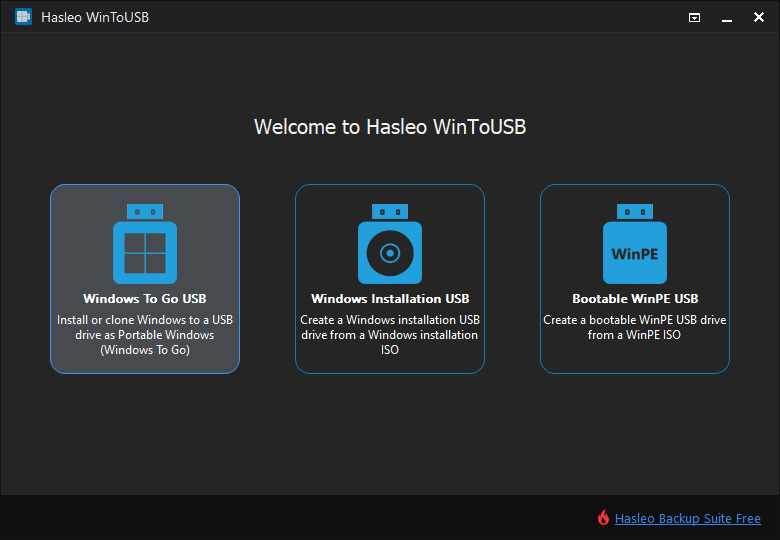
Step 2. Click "Select installation source" => "Browse image file". Then choose an image file from the dialog box as your source. Alternatively, select a CD/DVD drive with Windows installation media.
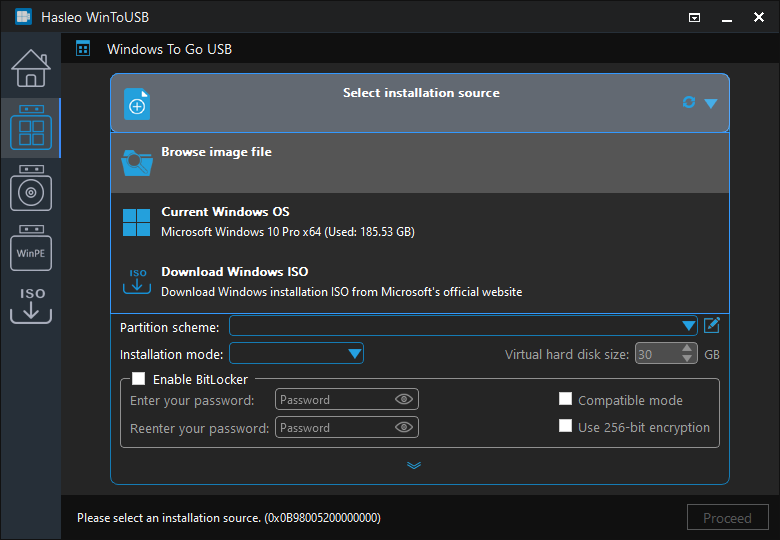
Step 3. Hasleo WinToUSB will scan for and list the available Windows editions. Please select the edition you want to install.
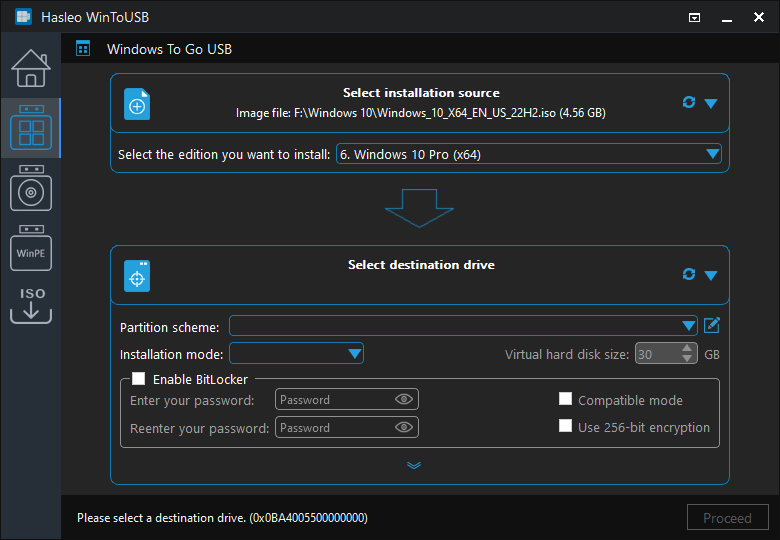
Step 4. Click "Select destination drive", then choose the target drive from the pop-up list. If Hasleo WinToUSB fails to detect the drive, click the ![]() button to initiate drive recognition.
button to initiate drive recognition.
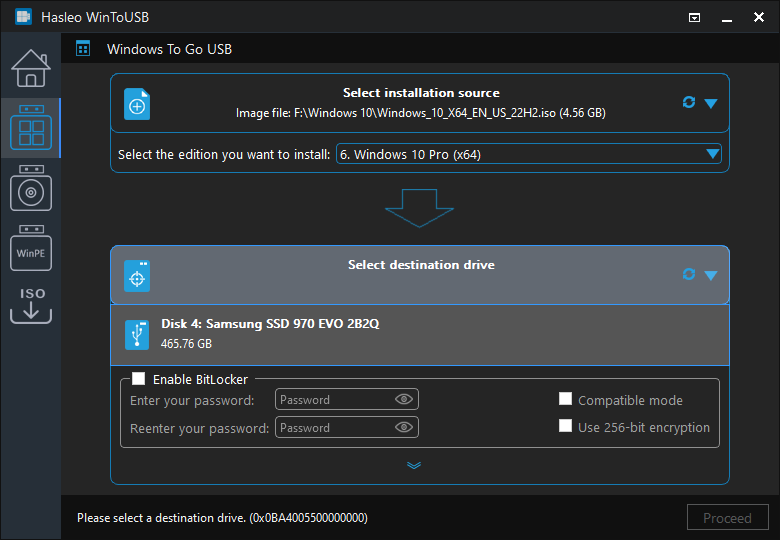
Step 5. Select your preferred partition scheme and installation mode. Optionally, you may specify additional drives or enable BitLocker encryption for the Windows To Go drive, then click "Proceed".
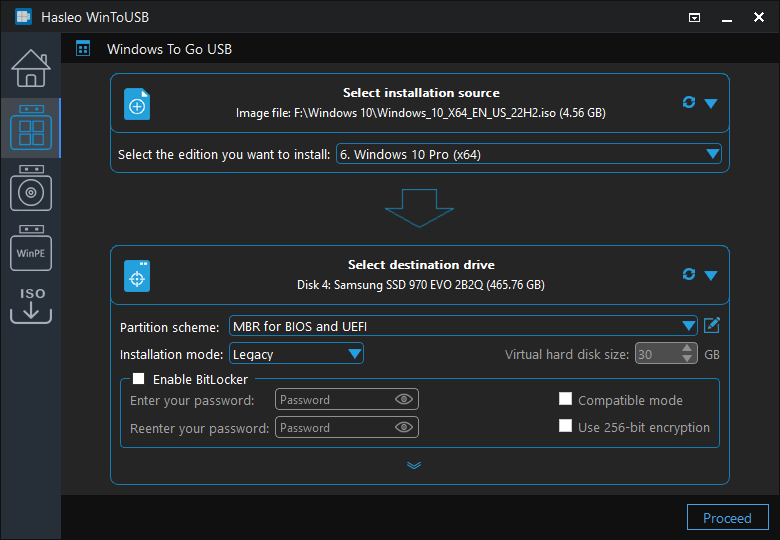
* Tips:
Step 6. After clicking "Proceed", a confirmation dialog will appear asking whether to continue formatting the drive. Click "Yes" if you accept the operation.
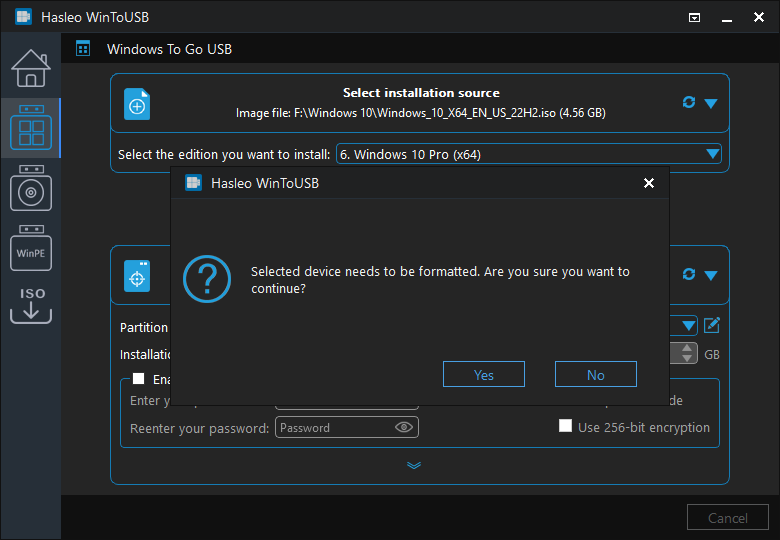
Step 7. After clicking "Yes", WinToUSB initiates Windows installation on the destination drive.
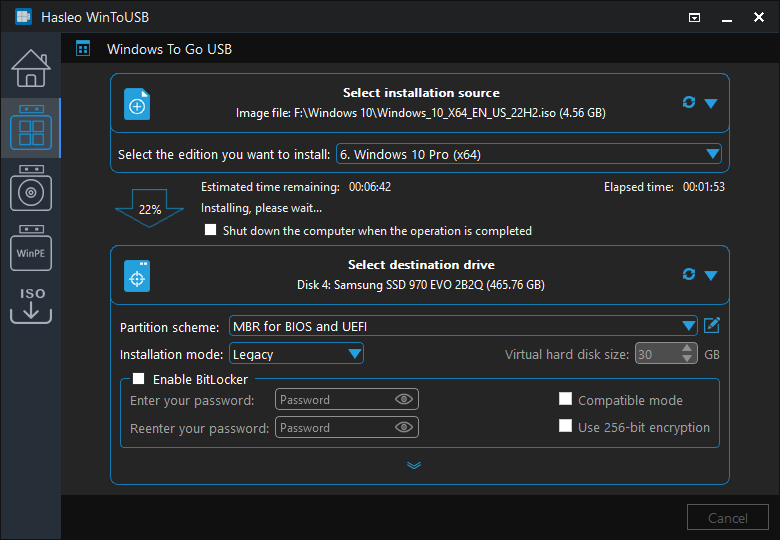
Step 8. The installation will take some time. After installation, restart the computer and enter UEFI/BIOS settings to boot from the USB drive.
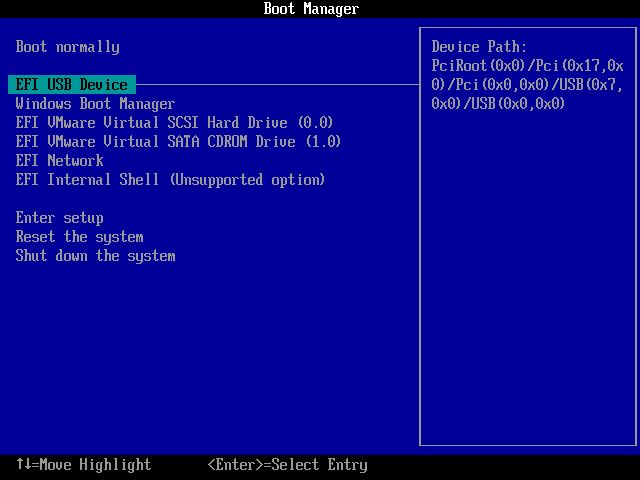
Step 9. A standard Windows installation requires completing all setup steps during the first boot. Afterward, you can install applications and copy files, etc.
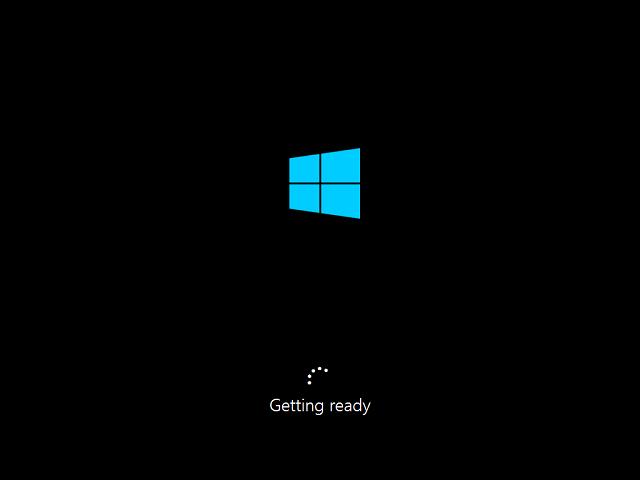
Following these simple steps, you can use Hasleo WinToUSB—the best tool to create portable Windows systems. It allows you to install or clone Windows 11/10 on a USB drive as a Windows Live USB.
Hasleo WinToUSB is a professional tool for creating bootable Windows USB drives, including Windows Live USBs, Windows installation drives and WinPE bootable drives.